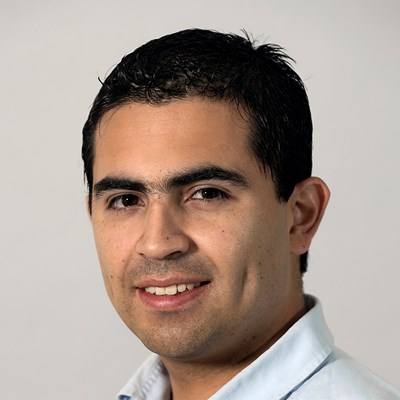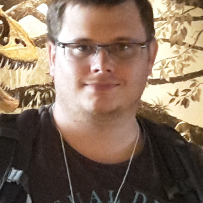INVITED SPEAKERS
Dr. Hector Cancela - IFORS President
 |
Presentation Title:Operations research for social good: job assignment for people with disabilities and preference based unit assignment in cooperative housing AbstractOperations research models are increasingly applied in very different contexts, including applications for social good, where the main goal is not an economic or productive one, but addressing human needs and help underserved communities. |
Dr. Jitka Janovà
 |
Presentation Title:Validation of Optimization Models in Agriculture and Natural Resources AbstractOptimization modeling has long been used to support agriculture and natural resources management. However, the credibility of these models is often questioned due to concerns about data quality, the failure to include important processes, and the use of unrealistic assumptions. Validation is seen as essential for building trust in models, but how to validate optimization models remains a key question in operations research. In this lecture, we will present practical recommendations for developing validation frameworks tailored to optimization modeling in agriculture and natural resource management. Our discussion will (1) clarify the definitions and usage of validation-related terms commonly encountered in the literature, (2) identify and categorize various validation methods and frameworks for demonstrating model credibility, and (3) illustrate these concepts with real-world case studies. We conclude that practical validation conventions can be developed and applied. By using clear and consistent validation processes, researchers can better show the credibility of their models, making them more useful for readers and practical applications. |
Dr. Victor Albornoz
 |
Presentation Title:Decomposition methods as a problem-solving strategy in agriculture AbstractOptimization is one of the most used methodologies to support decision making in agricultural systems and nowadays these optimization models are conceived into a data-driven perspective. In fact, modern agriculture considers an intensive use of geographic positioning systems, sensors, drones and other data collection devices that contribute to collect and forecast valuable information to support decision making problems such as crop planning, water management, harvest plan and agri-food supply chain management problems, among others. In this tutorial we present different problems in agriculture, introduce the basic ideas of column generation and the Benders decomposition methods and describe how can be used as algorithmic strategies for solving the problems described. |
Dr. Dan Børge Jensen
Dr. Emilio Carrizosa
 |
Presentation Title:Explainable Machine Learning for Explainable Decision Making AbstractData-driven decision making calls for the use of accurate prediction procedures to distil from data information on the parameters of the underlying decision problem. |
Dr. Filiz Ersöz
 |
Mini course:Machine Learning and Data Mining for Business Analytics AbstractThe aim of this course is to use basic and widely applied methods for data modelling and machine learning, and to gain practice by applying machine learning applications to business problems in modelling real world data. Participants will gain the knowledge, skills and competence to apply, analyse and interpret correct machine learning algorithms in business problems with any software tool. |
Dr. Laureano Escudero
 |
Presentation Title:On distributionally robust optimization with stochastic dominance risk averse functional in multi-horizon problems under uncertainty AbstractDistributionally robust optimization (DRO) is motivated as a counterpart of the usually unknown underlying probability distribution (PD) followed by the uncertainty in dynamic problems. An approach is presented for problem solving in stochastic multi-horizon (MH) environments, where the strategic uncertainty is represented in a finite set of stagewise-dependent scenarios and the tactical-operational one is done in a finite set of stage-dependent scenarios. For that purpose, it is assumed the availability of a Nominal Distribution (ND) for the realization of the strategic parameters in the immediate successor node set of anyone in the multistage tree, and a ND of the realization of the tactical-operational parameters in the stages through their multi-period horizon scenario tree. Those ambiguity sets are obtained from the projections of appropriate perturbations of the cumulative distribution functions of the ND realizations in a set of modeler-driven PDs, where the Wasserstein distance is satisfied for a given radius. A mixed binary quadratic DRO-MH modeling paradigm is presented by considering the strategic and tactical-operational ambiguity sets for problem solving. The aim is to maximize the overall smallest (alternatively, minimize the overall highest) expected solution value in the nodes, among the ambiguity set members, subject to the constraint system for each ambiguity set member and the related one for the stochastic dominance risk averse functional. The goal of the risk averse measure is to control negative solutions of the DRO modeling-driven strategic, tactical-operational ambiguity sets, due to their so-named black swan scenarios. Given the intrinsic problem’s difficulty and the huge model’s dimensions in realistic and complex applications, it is not practical to seek an optimal solution. So, SFR3, a constructive matheuristic algorithm, is specialized for dealing with DRO. It stands for Scenario variables Fixing and Randomization of constraints / variables' integrality Relaxation iterative Reduction. Computational experience is reported to validate the proposal by considering some realistic pilot instances. |
Dr. Antonio Alonso
 |
Presentation Title:An Introduction to Cutting Problems and two real applications in the cardboard and Steel industries AbstractIn this talk, we will introduce cutting problems, which are combinatorial and have applications in many industries. This type of problem involves deciding how to cut large parts into smaller parts with the dimensions specified in the job. It can be one, two, or three-dimensional, where the large stock parts are all the same or of different types, whether or not the off-cut is reusable, and so on. The goal is usually to minimize the amount of material used. It often appears in combination with other problems (allocation of cutting machines, packaging of the resulting parts, sequencing and provisioning are the most common). After the introduction, we will analyze two real problems, showing the models and advantages of their application in two Spanish companies in the rolled steel and honeycomb cardboard sectors. In particular, in the latter case, we present a variant recently introduced in the literature, in which the initial stock is produced in the factory, and the company can decide its dimensions. |
Dr. Mario Guajardo
 |
Presentation Title:Optimizing cattle farms: Economic and environmental criteria AbstractThe profitability of dairy and beef products and the environmental impact of their production depend on decision-making at cattle farm level. Therefore, it is important to identify farm-level actions which contribute to the economic profitability of farmers, while at the same time mitigate the impact on the environment. This talk will present an overview on an on-going project in Norway called OPTINORFARM. The project proposes to implement optimization models and methods into computational tools to support decision-making of farmers. We develop a quantitative framework to economically optimize production at farm level under various operational constraints and to calculate the corresponding greenhouse gas (GHG) emissions. The economic optimization is carried out by a mathematical programming model. The assessment on GHG emissions is carried out using well-established methods to compute methane (CH4), nitrous oxide (N2O) and carbon dioxide (CO2) emissions in CO2 equivalent. Our framework can be used to study a variety of different problems in cattle farming. For example, we may address questions such as: Is it optimal for the farmer to run their farms under conventional or organic systems? Which measures should farmers take in order to be economically profitable and climate friendly? |
